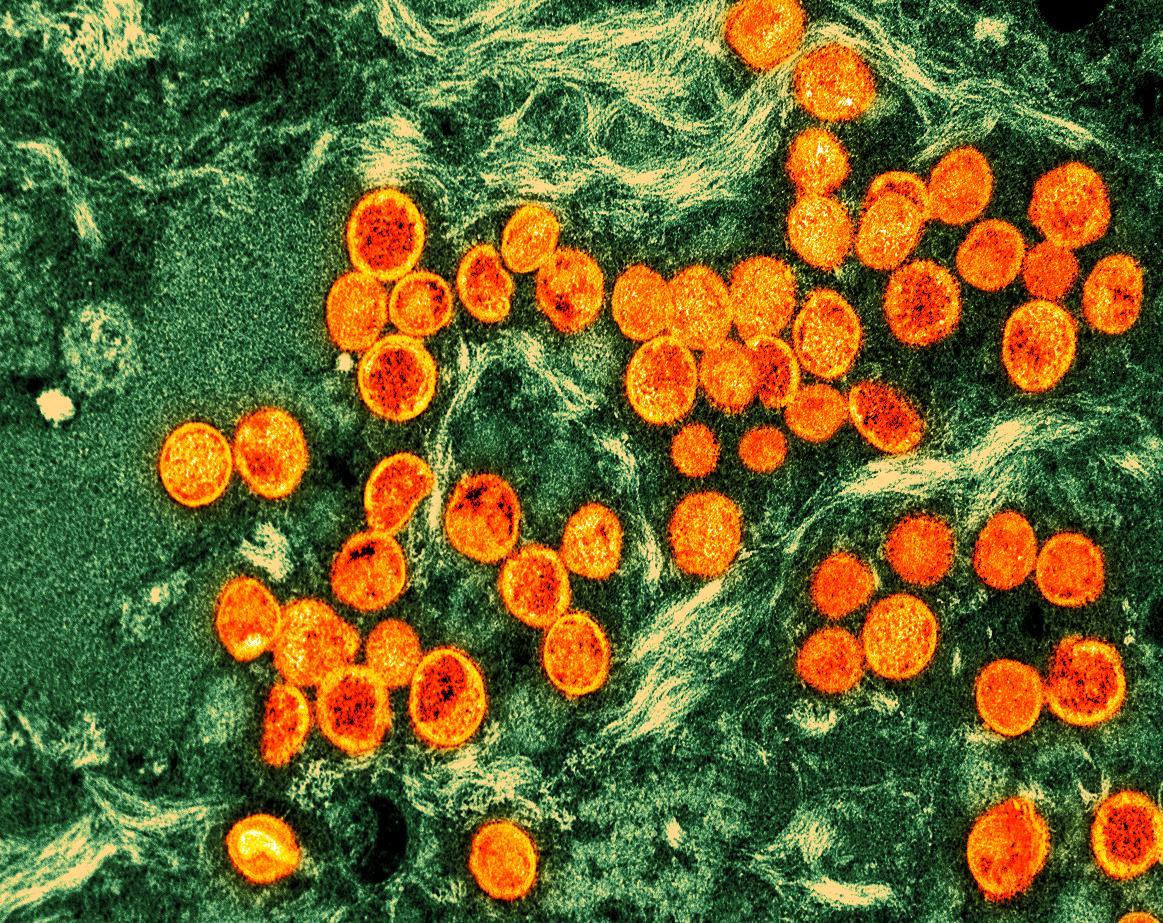For the first time since August, the World Health Organization (WHO) updated its mpox guidance, recommending that known case contacts avoid sexual contact with others for 21 days, whether symptomatic or not, given that transmission may occur before symptom onset.
"Quarantine or exclusion from work are not necessary as long as no symptoms develop, but known contacts should avoid sexual contact with others during the 21 days monitoring period, regardless of their symptoms," the guidance reads.
The guidance also officially replaces all WHO mentions of "monkeypox" with "mpox," the new official name of the virus, which has caused 83,497 cases, 72 of them fatal, in 110 countries since May. Most cases (95.8%) have occurred as a result of sexual transmission between men who have sex with men (MSM). The WHO suggested changing the name in late November.
If mpox is suspected in a clinical or hospital setting, the WHO said providers should wear personal protective equipment (PPE) and investigate patients in well-ventilated rooms.
WHO group to investigate origins of disease
The WHO's Scientific Advisory Group for the Origins of Novel Pathogens (SAGO) has published recommendations to better understand the origins of and factors for the emergence and re-emergence of mpox.
Key recommendations include conduct of studies of human-to-human transmission dynamics and infectiousness to identify the reproductive number, duration of viral shedding, and all possible transmission routes.
SAGO also said studies on animal reservoirs are urgently needed.
"There is a need to conduct further and more detailed research to better understand the emergence into the human population; the various routes of disease transmission; whether there are any new routes, sexual networks, virus evolution; the role of human behaviours that have resulted in disease acquisition and transmission; the role of prior immunity (with other orthopoxviruses) and the animal reservoirs in which the virus circulates in previously as well as newly affected countries," SAGO said.
UK study looks at hospitalized mpox patients
Finally today, a recent study in Lancet Infectious Diseases highlights the clinical features and management of 156 hospitalized mpox patients in the United Kingdom and complications of the disease in individuals admitted between May 6 and Aug 3, 2022, at 16 hospitals in England and Northern Ireland.
Almost all (153 of 156) patients were men; the median age was 35. Approximately 71% were White, and 47 of 155 (30%) were living with HIV.
Rectal and perianal pain was the most common indication for hospitalization, with severe pain reported in 89 of 156 (57%) and secondary bacterial infection in 82 of 142 (58%) individuals with available data.
The median hospital stay was 5 days. No deaths were reported, but 10 patients required surgery, and two cases of encephalitis were reported.
"Almost a third of our study population had intercurrent sexually transmitted infections, which is higher than that reported for outpatient populations," the authors said.
The authors concluded by stating that although severe mpox complications are rare, an estimated 5% to 6% of patients require hospitalization, largely for pain management.



















